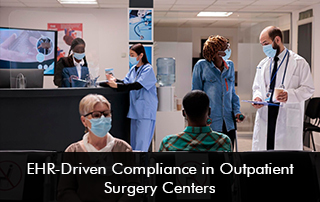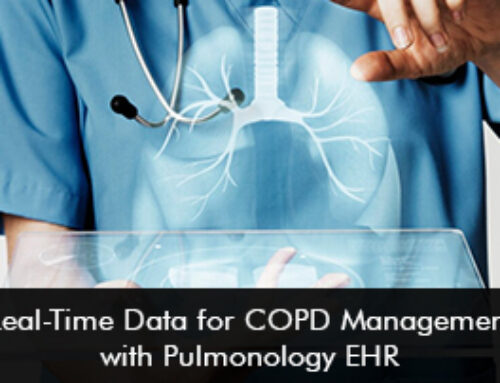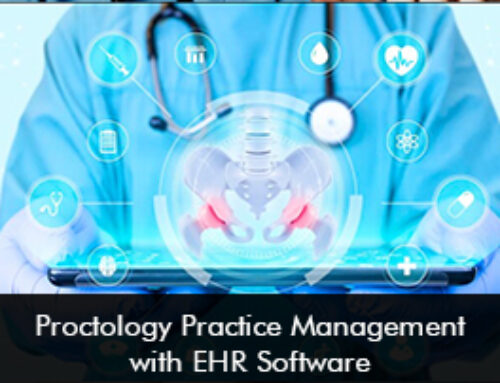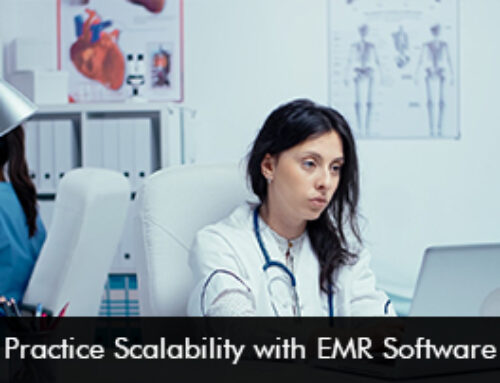Outpatient surgery centers are under mounting pressure to deliver top-notch care while navigating a dense web of regulatory requirements. This is where Electronic Health Records (EHR) and Electronic Medical Records (EMR) software step in—not just as digital filing cabinets, but as powerful engines driving compliance, safety, and efficiency.
The Vital Role of EHR in Outpatient Surgery
As outpatient procedures continue to rise in volume due to their convenience and cost-effectiveness, the role of EMR software in managing clinical documentation, patient histories, and real-time data exchange has never been more critical. Modern EHR software goes far beyond storing records—it supports surgical teams with clinical decision tools, ensures timely reporting for government programs like MIPS and MACRA, and automates compliance workflows that once consumed hours of staff time. In an era where precision, accountability, and interoperability are paramount, EMR and EHR systems have become the backbone of high-functioning, regulation-ready outpatient surgical practices.
Key Features Enhancing Compliance in Outpatient Surgery Centers
-
Regulatory Compliance and Reporting
- MACRA and MIPS Integration: Modern EHR systems are designed to align with the Merit-based Incentive Payment System (MIPS) and the Medicare Access and CHIP Re-authorization Act (MACRA), facilitating accurate reporting and compliance.
- TEFCA and FHIR Standards: Adoption of the Trusted Exchange Framework and Common Agreement (TEFCA) and Fast Healthcare Interoperability Resources (FHIR) standards ensures secure and standardized data exchange across different healthcare systems.
- Automated Quality Reporting: Advanced EHR software automates the collection and submission of quality measures, reducing manual errors and administrative burden.
-
Enhanced Interoperability
- Seamless Data Exchange: EHR systems now offer improved interoperability, allowing for real-time data sharing between outpatient surgery centers, hospitals, and other healthcare providers.
- Integration with Wearable Devices: Incorporating data from wearable devices into EHRs enables continuous monitoring of patients’ post-surgical recovery, enhancing care quality and compliance.
-
Advanced Clinical Decision Support
- AI-Powered Insights: Integration of artificial intelligence in EHR systems provides predictive analytics and clinical decision support, aiding in early detection of complications and improving patient outcomes.
- Customized Alerts and Reminders: EHR software can generate tailored alerts for medication administration, follow-up appointments, and other critical tasks, ensuring adherence to care protocols.
-
Patient Engagement and Communication
- Patient Portals: EHR systems offer secure portals where patients can access their medical records, communicate with providers, and manage appointments, fostering transparency and engagement.
- Telehealth Integration: The incorporation of telehealth functionalities within EHRs allows for virtual consultations, expanding access to care and maintaining continuity during post-operative periods.
-
Operational Efficiency
- Streamlined Workflow Management: EHR software optimizes scheduling, documentation, and billing processes, reducing administrative workload and enhancing productivity.
- Real-Time Data Access: Clinicians can access up-to-date patient information from any location, facilitating timely decision-making and coordinated care.
Top 5 EHR Software Recommended for Outpatient Surgery Centers
-
Epic Systems
Epic Systems is renowned for its comprehensive EHR solutions that cater to a wide range of healthcare facilities. Its robust features include:
- Scalability: Suitable for both large hospitals and outpatient centers.
- Interoperability: Facilitates seamless data exchange across different healthcare systems.
- Patient Engagement Tools: Offers patient portals and mobile apps for enhanced communication.
- Advanced Analytics: Provides data-driven insights for improved clinical decision-making.
-
Cerner Corporation
Cerner’s EHR platform is designed to optimize healthcare delivery through:
- Comprehensive Solutions: Supports clinical, administrative, and financial operations.
- Population Health Management: Offers tools for managing and analyzing patient populations.
- Mobile Accessibility: Enables clinicians to access patient data on-the-go.
- Interoperability: Ensures secure and efficient data sharing across systems.
-
Athenahealth
Athenahealth provides a cloud-based EHR system known for:
- Ease of Use: User-friendly interface requiring minimal training.
- Revenue Cycle Management: Integrates billing and financial operations for streamlined processes.
- Continuous Updates: Regularly updates software to comply with the latest regulations.
- Patient Engagement: Offers tools for patient communication and appointment management.
-
eClinicalWorks
eClinicalWorks is a versatile EHR solution offering:
- Comprehensive Functionality: Covers clinical documentation, scheduling, and billing.
- Telehealth Capabilities: Facilitates virtual consultations and remote patient monitoring.
- Interoperability: Enables seamless integration with other healthcare systems.
- Patient Portal: Allows patients to access their health information and communicate with providers.
-
NextGen Healthcare
NextGen Healthcare specializes in providing EHR solutions for outpatient settings, featuring:
- Customizable Templates: Tailors documentation to specific specialties and workflows.
- Integrated Practice Management: Combines scheduling, billing, and reporting functionalities.
- Patient Engagement Tools: Offers portals and communication features to enhance patient interaction.
- Analytics and Reporting: Provides insights into practice performance and patient outcomes.
The integration of advanced EMR and EHR systems is pivotal for outpatient surgery centers aiming to enhance compliance, improve patient care, and streamline operations. By adopting top-tier software solutions like Epic Systems, Cerner Corporation, Athenahealth, eClinicalWorks, and NextGen Healthcare, these centers can navigate the complexities of modern healthcare with greater efficiency and effectiveness.







